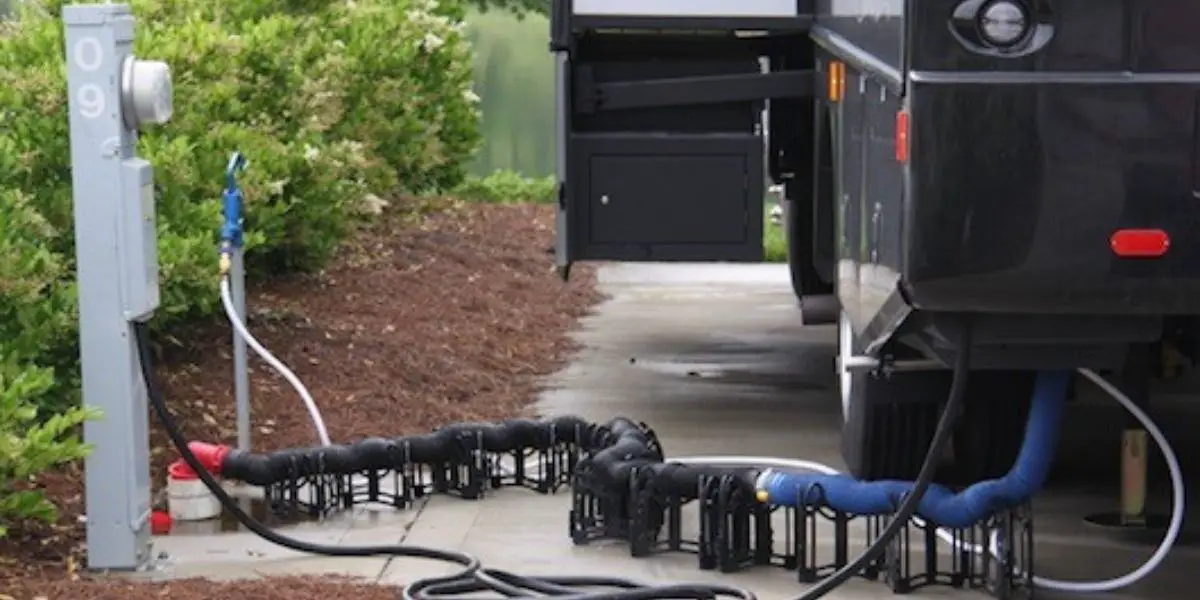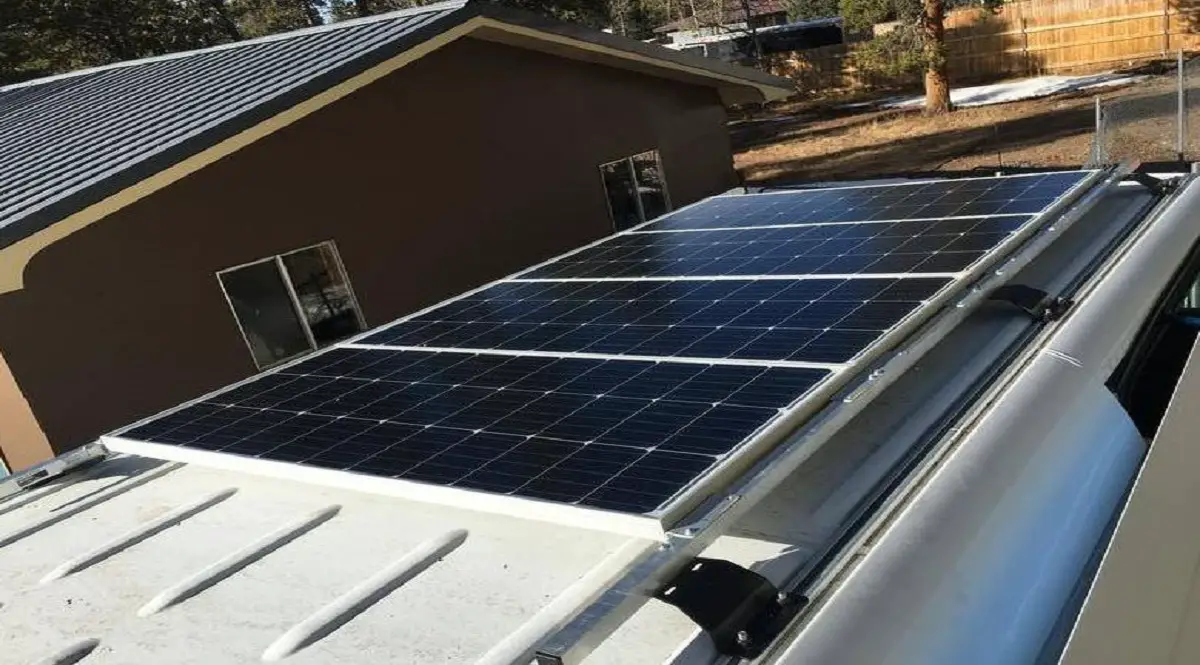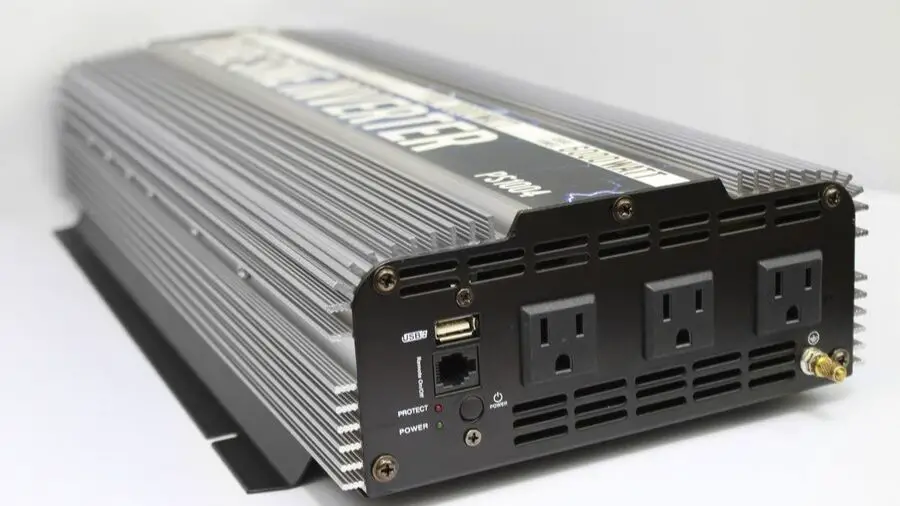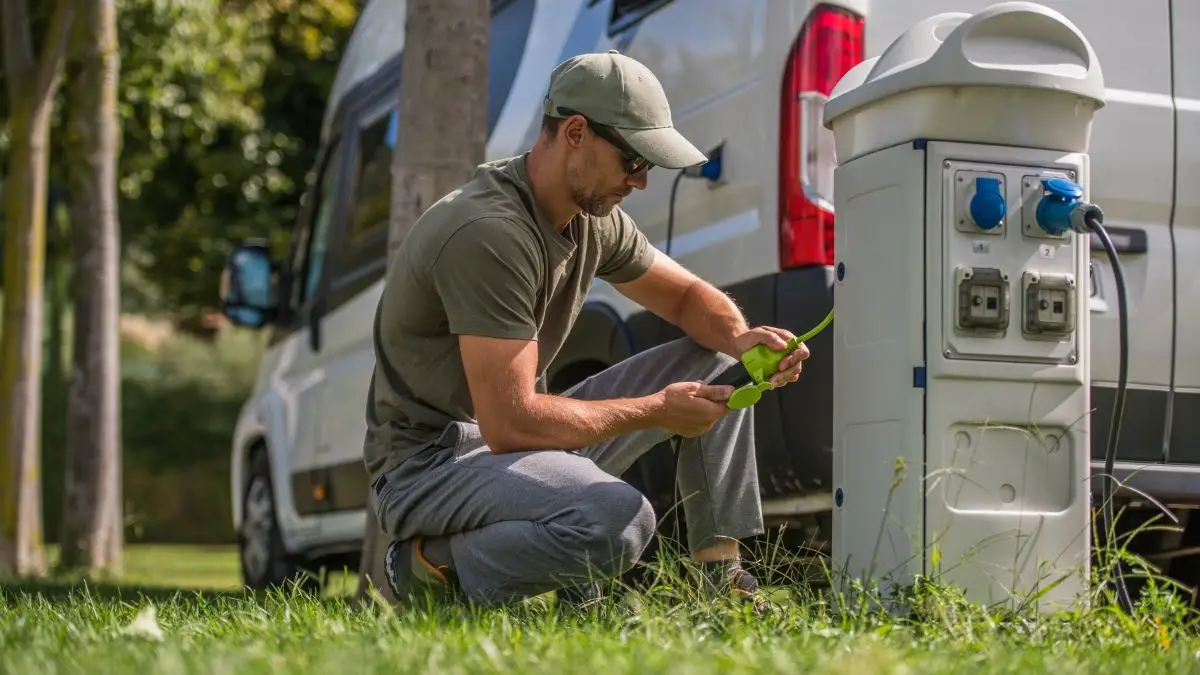It is possible to plug an RV into a regular home outlet of 110/115 V AC power. It’s widespread practice for most Rver’s to plug their Rig into their house to cool their fridge and charge up their batteries before they leave on a camping trip. Even long-term having your RV plugged into your home power of 110/115 volt AC should not affect anything in your RV. The biggest concern is running too many appliances at one time or running appliances that require too many amps and your 15/20 amp home electrical is not able to supply can result in in popping your breaker on your house’s breaker panel.
What Can I Run When My RV Is Plugged Into My Home Electrical?
For all RV’s plugging into your home electrical outlet that provides 15 amps of power, the minimum of appliances should be run. Such as the fridge, some lights, charging the batteries and maybe a few fans should not be a problem. However, if you wanted to run your air conditioner along with those other items, I would have some concern that a breaker would be blown. It is possible to run you’re A/C if it is under 1500 watts if you are using a soft start or slowly increase the speed on you’re A/C’s control board you can read more about it here.
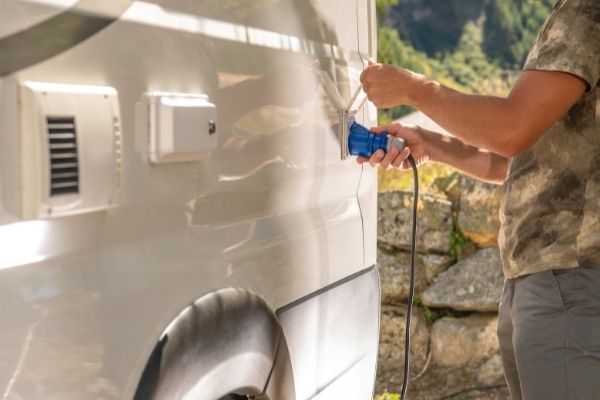
Can I plug My 30 amp / 50 amp RV / Camper Into A Regular House Outlet?
Plugging your RV into a regular house outlet 15/20 amp receptacle requires an adaptor or a dog bone to convert the plug from either 50 amp to 15/20 amp receptacle or a 30 amp to 15/20 amp receptacle. These adaptors are perfectly safe to use to step down the connections to connect to your homes AC power. The 15/20 amp from your home’s AC power should not cause any harm to your RV. To find out what amperage your outlet(s) have is to check the circuit breaker and if you see the number 15 = 15 amps, and if you see the number 20 = 20 amps. Since you’ll be plugging your 30 or 50 amp RV into a 15-20 amp outlet, it means you won’t be able to run all the appliances on your RV while you’re charging the batteries or cooling down your RV fridge.
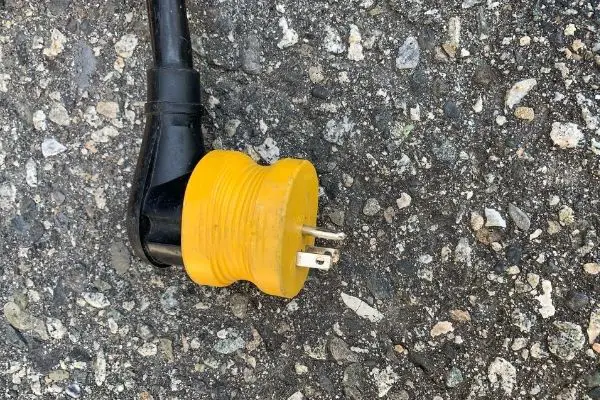
Can You Run A 30 amp RV On 15 amp?
You can run your 30 amp RV on a 15 amp outlet, but you won’t have enough power to run all your appliances. Remember that since you can’t get more than 15 amps of power from
the outlet, make sure that the amount of power drawn by your RV does not exceed the maximum electrical load capacity. Since each country will have different electrical standards and configurations, you can compute the electrical load using the formula:
Amperage (A) x Volts (V) = Watts (W)
Example: 15 amp outlet x 120 volt circuit = 1,800 watts
With this example, you can just adjust to the available amperage (15 or 20 amps) or voltage circuit (either 110v or 220v) available in your home to see the maximum electrical load you can draw in your RV while plugged into a house outlet (so you don’t trip the breakers). Power hungry items should be avoided (AC, microwave, hair dryer, etc.), and I explain more on this in the article HERE.
What Do I Need To Plug My 30 Amp / 50 Amp RV Into My House?
You can directly plug in your 30 or 50 amp RV into your house via: (1) directly into the wall outlet (which can allow either 15 or 20 amps) using the appropriate adapters, or (2) if you install a dedicated 30 or 50 amp RV hookup similar to what you can find in RV parks. With the former in mind, the adapters you’ll need, depending on your RV is/are:
| 30 Amp RV | 50 Amp RV | |
| RV Adapter(s) Needed | 30-amp female to 15-amp male | 50-amp female to 30-amp male + 30-amp female to a 15-amp male |
In case the most convenient house outlet isn’t as accessible to your RV plug and adapters, you’ll will need a proper extension cord, make sure that the extension cord you use is heavy-duty, weather resistant and is a gauge 10 (ultra-heavy duty) with an amp rating that fits your RV like the Camco (55191) 25’ 30A PowerGrip extension cord which can also come in longer lengths and would also have a 50A available.
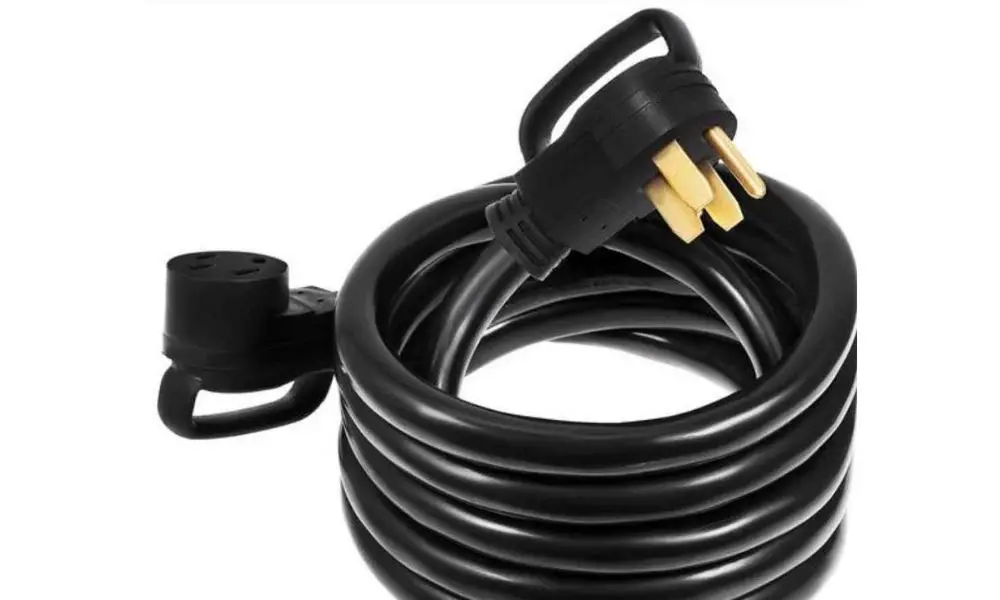
Is It Bad To Leave Your RV Plugged In All The Time?
Plugging an RV into power all the time does not harm anything in the RV. The extended use of the appliances and converter may shorten the life of these items as they have been used more frequently. It is not bad to leave your RV plugged in all the time, but the increased use will mean more repairs and replacement of parts will occur sooner than for someone who only uses their RV occasionally through the year.
One of the things to be wary about keeping your RV plugged in all the time will be your electricity bill. Your RV is a portable home, so expect the electric bill to jump up, especially if it’s plugged in at home, and you have the RV’s AC or heater on – whether you’re using the RV as a spare space for guests or living in it full-time. When it comes to your RV batteries, unless you have a smart converter with a trickle charge, the constant overcharging can dry up your lead-acid batteries faster or if it gets undercharged, can lead to sulfation. Also having a BMS (Battery Monitoring System) is important so it can take out the guess work, and you’ll get to protect your battery bank. One of the main things to think about is that if you leave your RV plugged-in all the time, it’ll be subject to more wear and tear. There will be small electrical devices on your RV, like clocks or gas detectors that will drain power, so having a battery disconnect switch can protect your RV batteries.
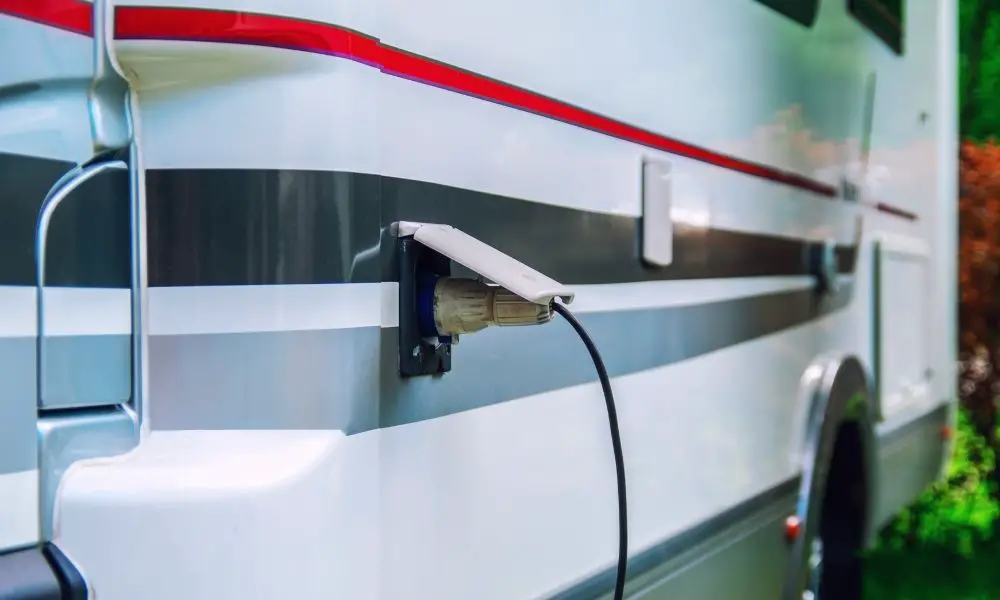
Can I Plug My RV Into 220V?
This depends on if you have a 30-amp RV or 50-amp RV. 30-amp RV’s can only plug into 110 volts, while a 50 amp can plug into 220-volt. Large RV that needs 50-amp power is designed to handle 220 volts of power. The 50 amp is 110 v by 2 times, which equals 220 volts.
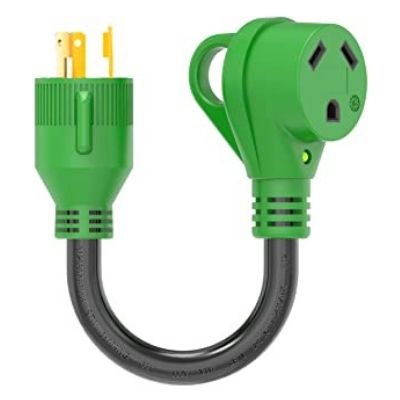
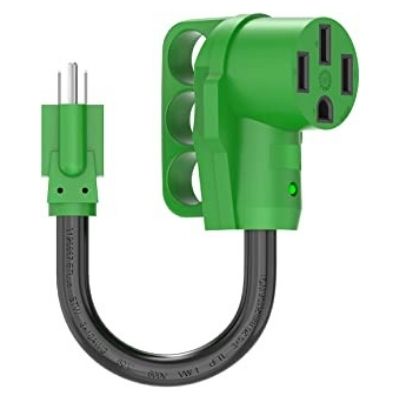
Can you Plug Your RV Into Your Dryer Outlet?
While the Plug for your RV and your home Dry plug might look like it fits, the
Conclusion
Hopefully this article can serve as a beneficial guide to make sure you properly hook up your RV to your house outlet. Always prioritize electrical safety, not just for your RV, your house, but your safety as well. So if you have any doubts, always make sure to consult a certified electrician who’s familiar with RVs to make sure no issues occur.

